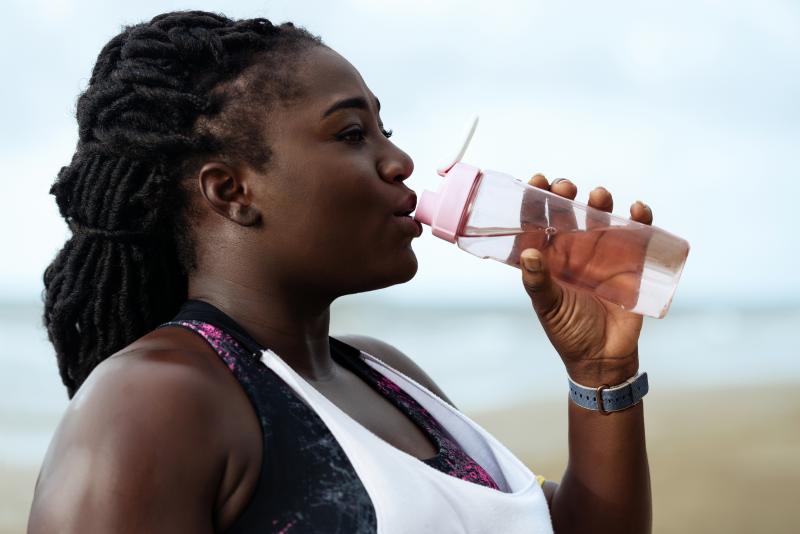Everyone knows how important it is to drink water. But even with a concept so simple, there are plenty of myths out there regarding exactly how much or the specific benefits. Bayhealth Outpatient Registered Dietitian Jinette Fellows, RD, LDN, helps separate fact from fiction when it comes to drinking water.
Fact or fiction: Everyone needs to drink eight glasses of water each day.
While this recommendation is well known, it isn’t entirely accurate. According to the Institute of Medicine of the National Academies, most women need 2.7 liters of water per day, while most men need 3.7 liters. This can come from beverage and food such as fruits, vegetables, cooked whole grains, soups, milk, juice, coffee, tea and other common beverages. This averages to about nine cups of fluid for women and 13 cups of fluid for men.
“It’s important to note these averages are for people who aren’t active and live in a temperate climate,” said Fellows. Anyone who is very active or who lives in a warmer climate may require even more fluid. While water is the best choice, Fellows says milk, tea, and carbonated water are good substitutes. It’s best to limit soda, juice and sugar-sweetened drinks.
It’s also better to break up fluid intake throughout the day in equal intervals when possible. “You lose water throughout the day, so it’s best to stay hydrated as the day progresses rather than take in a lot of water only at the beginning or end of the day,” adds Fellows.
Fact or fiction: Drinking water removes toxins from the body.
This is somewhat accurate, but Fellows stresses its waste, not necessarily toxins, that get removed. “When adequately hydrated the body is able to get rid of waste very effectively,” she said. “It’s also important to remember that when the body is adequately hydrated vitamins and minerals also get where they need to go throughout the body.”
Fact or fiction: You can drink too much water.
This is true, but very rare. “As long as individuals are drinking to their thirst and listening to their bodies, drinking too much water is extremely rare,” said Fellows.
Fact or fiction: Drinking water can help moisturize skin.
The skin is approximately 30% water and does play a large role in hydration status. But staying hydrated is not enough to prevent wrinkles or other signs of aging. Those have more to do with genetics, sun or environmental exposure.
In the event of extreme dehydration, there is fluid loss in the skin. In that scenario, increasing fluid will improve the look and feel of dry skin. “Staying hydrated is especially beneficial for individuals with diabetes that need to be particularly careful with maintaining their skin integrity.”
Fact or fiction: It’s easier to get dehydrated in the winter.
“It is very easy to become dehydrated in the winter. People aren’t as likely to carry around a water bottle and most people report being less thirsty in the winter months,” said Fellows. “However, the warm summer months can also easily lead to dehydration.”
No matter the season it’s critical to know the signs of dehydration which include thirst, dry lips and mouth, fatigue, irritability, headaches, dizziness, and dark or strong smelling urine. Fellows says urine should never be darker than the color of lemonade.
Fact or fiction: Aging affects thirst.
This is surprising, but true. “As we age, our thirst mechanisms decline,” said Fellows. “Older adults often don’t feel thirsty. This can make them prone to dehydration. I always encourage my older patients to have a beverage with every meal to ensure they are getting enough fluids throughout the day.”
Bayhealth has both inpatient and outpatient dietitians. If you’re interested in talking with an outpatient dietitian, consult your primary care physician. Visit Bayhealth.org/Nutrition-Services for more information about our Nutritional Services or call 302-744-6828.






















































